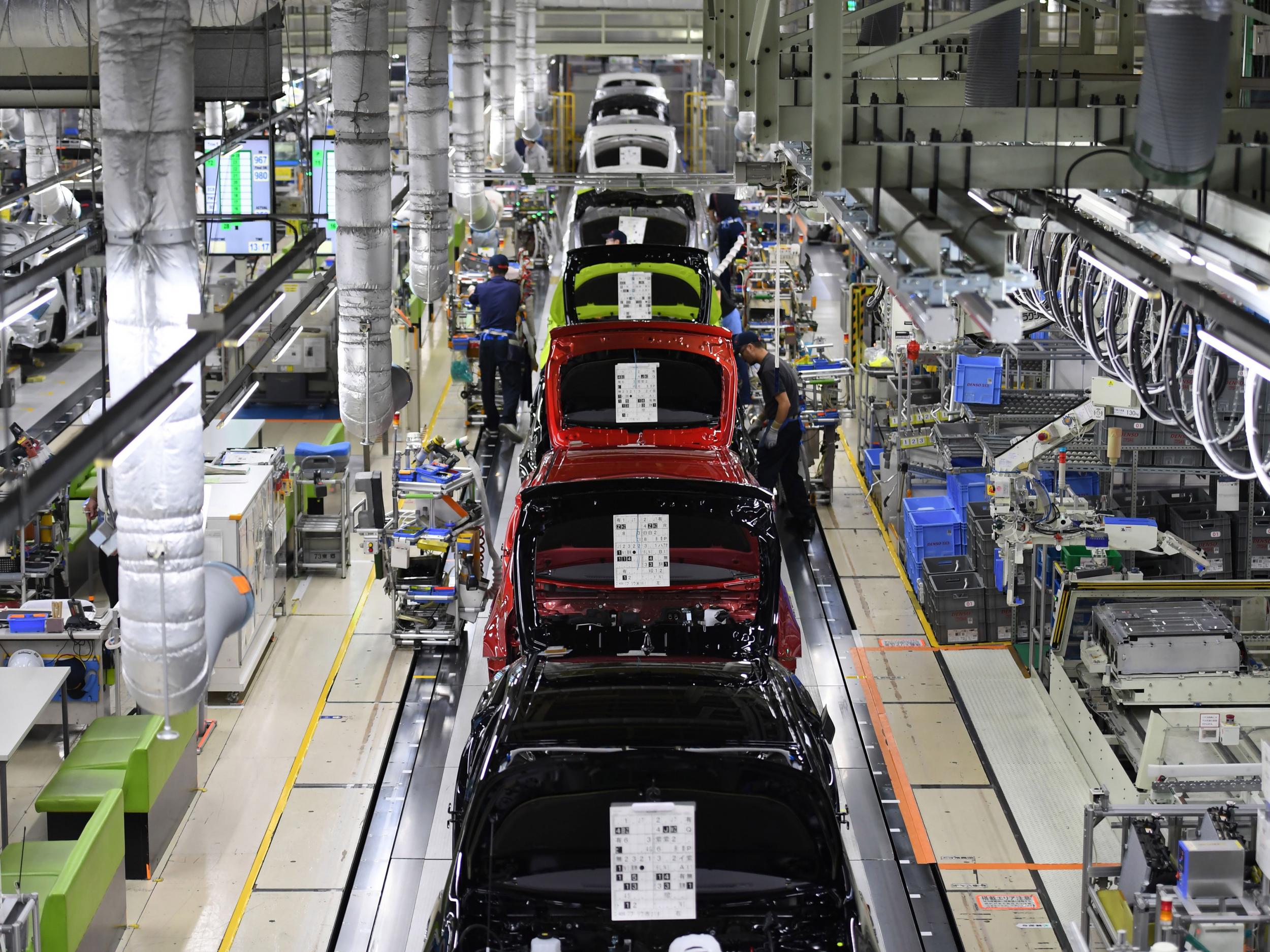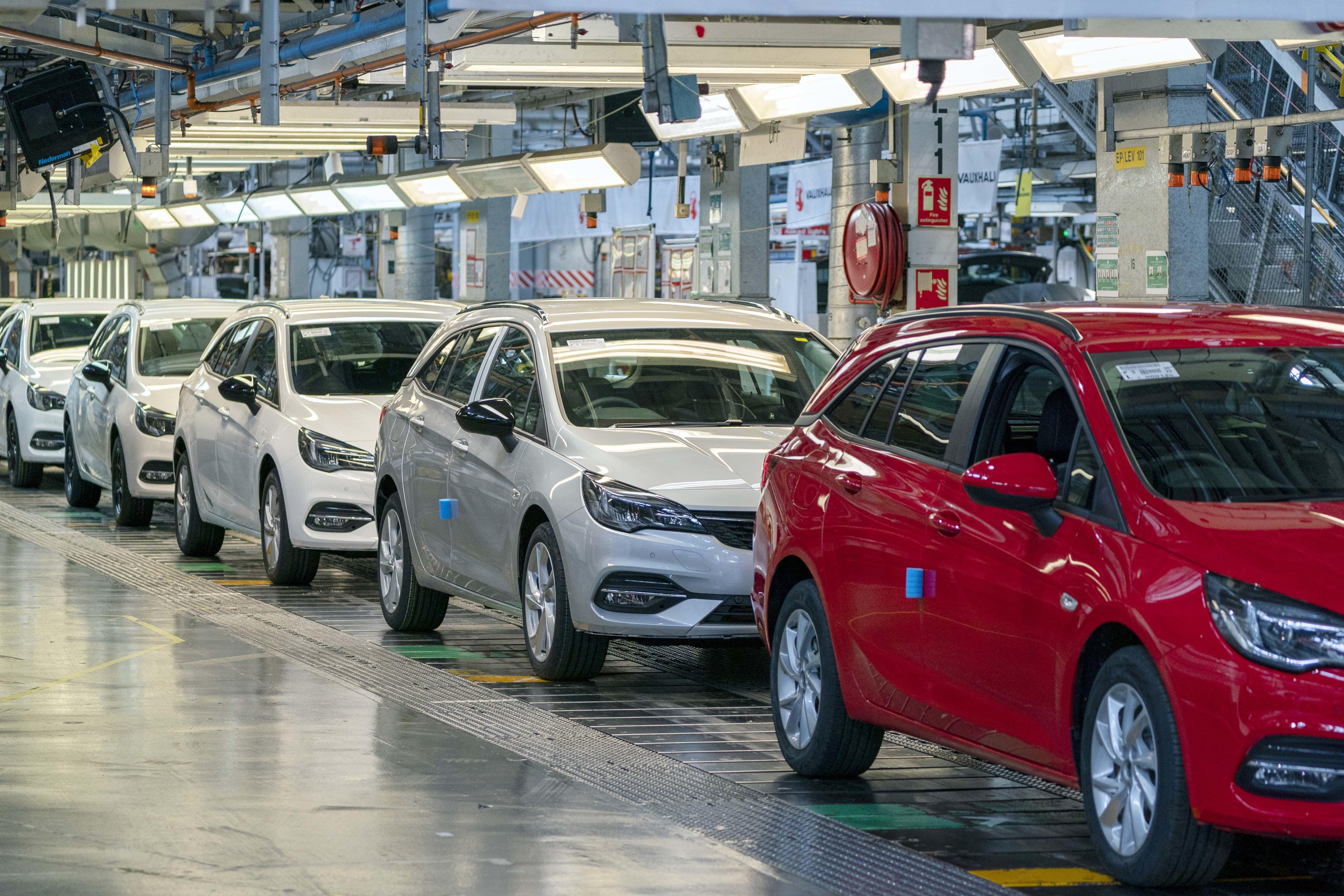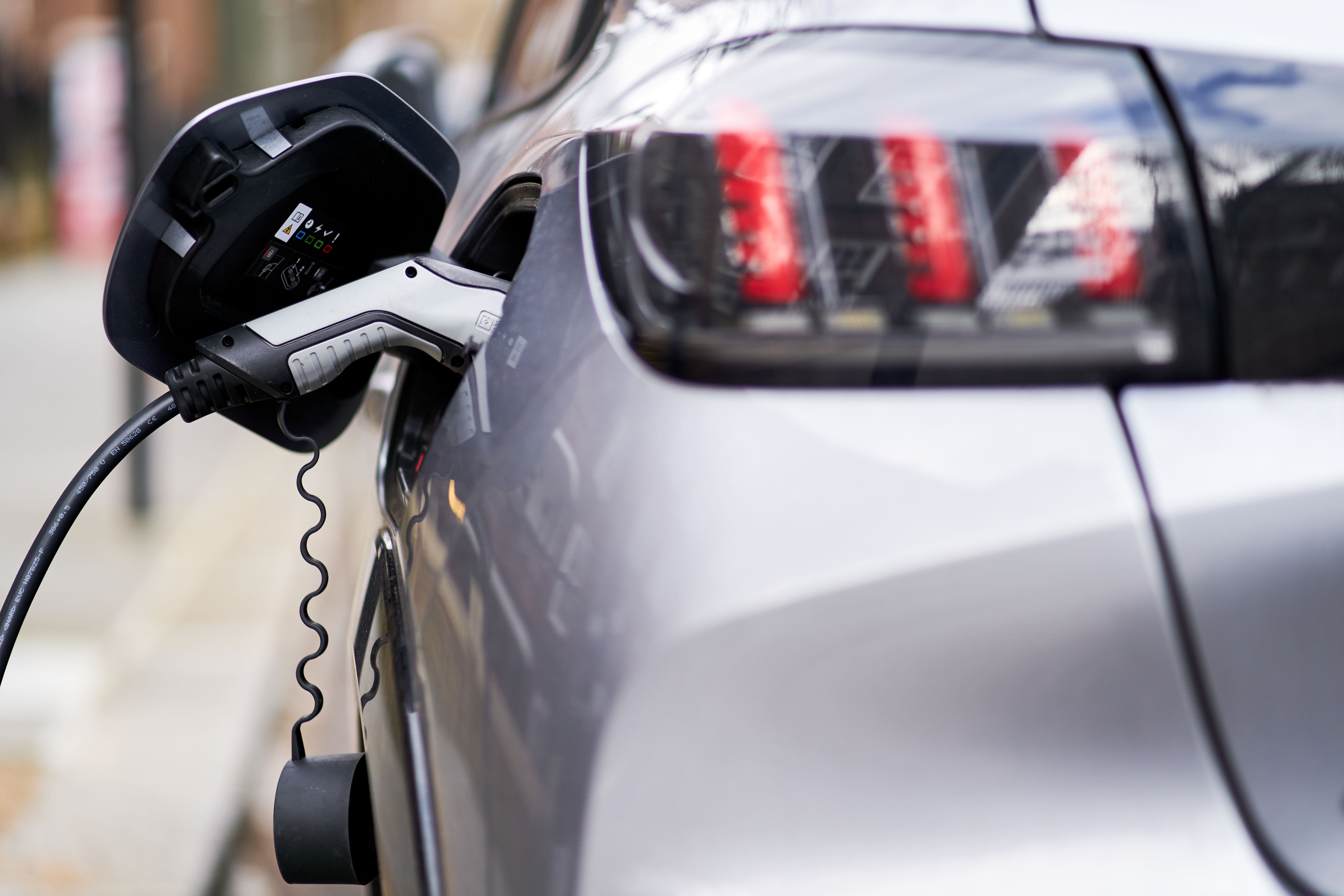Carmakers could get five more years to sell Prius-style hybrids to boost troubled industry
The sale of new petrol and diesel cars will be banned from 2030, but an exemption for certain hybrid cars is under consideration

Your support helps us to tell the story
From reproductive rights to climate change to Big Tech, The Independent is on the ground when the story is developing. Whether it's investigating the financials of Elon Musk's pro-Trump PAC or producing our latest documentary, 'The A Word', which shines a light on the American women fighting for reproductive rights, we know how important it is to parse out the facts from the messaging.
At such a critical moment in US history, we need reporters on the ground. Your donation allows us to keep sending journalists to speak to both sides of the story.
The Independent is trusted by Americans across the entire political spectrum. And unlike many other quality news outlets, we choose not to lock Americans out of our reporting and analysis with paywalls. We believe quality journalism should be available to everyone, paid for by those who can afford it.
Your support makes all the difference.Carmakers will be granted a five-year extension to sell hybrid cars in plans being reviewed by ministers to help beleaguered motor manufacturers.
The sale of new petrol and diesel cars will be banned from 2030, but an exemption could be made for some hybrid cars to be sold until 2035 to ease the threat of factory closures after Vauxhall’s owner said its Luton plant will close.
The Financial Times reported former transport secretary Louise Haigh had been open to allowing the sale of Prius-style cars before she quit on Friday after she admitted having a spent criminal conviction from a decade ago.
Manufacturers are battling with public reluctance to buy electric cars, with figures published on Thursday showing that car production in the UK fell for the eighth month in a row.
Britain produced 15 per cent fewer cars in October than a year ago, with 77,484 vehicles rolling off production lines, according to the Society of Motor Manufacturers and Traders.

The poor figures came as carmakers warn that forthcoming fines for producing too many petrol and diesel cars could lead to more factory closures, following the announcement by Vauxhall owner Stellantis this week.
The impending plant closure prompted chancellor Rachel Reeves to say the government had launched a consultation “to look at the plans we inherited from the previous government”.
“It is really important ... to make sure that we get the balance right and [have] proper support for the automotive sector, the car industry, in Britain,” she told reporters earlier this week.
“We want people to buy electric vehicles, but we want to keep jobs, we want to keep investment in Britain, and we’re determined, through the consultation, to do just that.”
Plans were unveiled under former prime minister Boris Johnson to gradually phase out petrol and diesel-burning cars. That government said that any hybrids sold after 2030 “must deliver significant zero-emission capability”, which led to speculation over whether milder hybrids like Priuses would count since they need petrol engines to work.
Carmakers that have invested billions of pounds in hybrid technology have lobbied hard to get the government to allow most hybrid cars to be included.

It was reported in 2022 that Toyota threatened to close its car plant in Derbyshire, which makes Corolla hybrid cars, if the government banned models like these from 2030.
Now, ministers will consider allowing carmakers to make hybrids in the style of the Toyota Prius, which uses batteries to recoup energy lost when braking, giving cars much better efficiency in city driving.
Hybrid cars come in many forms: the mildest can’t run on battery power alone. They gather power through braking and then add a boost when accelerating. Models include the Ford Fiesta and some Volkswagen Golfs.
Models such as the Prius have bigger batteries and can run for short distances purely on battery, allowing the engine to be cut when the car comes to a stop. These cars pollute less than mild hybrids.
Plug-in hybrids have bigger batteries still and can be run for distances of dozens of miles on electric power. They can, as the name suggests, be charged up externally at home or using public chargers.
When the charge is depleted, they can use a petrol engine to carry on running for longer journeys, as well as recouping power when braking. Petrol and diesel engines are at their most efficient when running at constant speed, which makes hybrid technology valuable in cutting fuel costs and emissions.
Join our commenting forum
Join thought-provoking conversations, follow other Independent readers and see their replies
Comments